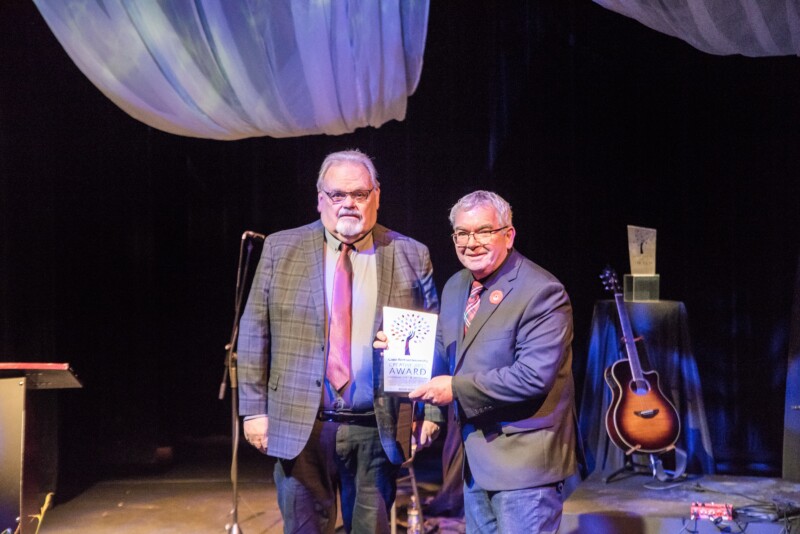Harry and Elizabeth Boardmore Builder Award
Award Description:
This award recognizes an individual who has initiated creative arts projects/programming on campus or in the community. Exemplifying a deep commitment to student engagement in the arts, this award winner has contributed greatly to the development of novel creative arts opportunities designed to reach a wide and engaged audience. Builders produce new and exciting creative arts deliverables exploring innovation in method, application and content.
About Harry and Elizabeth Boardmore:
Harry and Elizabeth Boardmore came to Cape Breton in 1966, from Sheet Harbour, at the invitation of Father Donald Campbell to teach at Xavier College. From the outset, they envisioned a thriving theatre culture on the Island. Their first production, The Crucible by Arthur Miller, set a precedent for excellence, drawing talent from both the College and the community. They ran two shows at Sydney’s Vogue Theatre, to capacity audiences and rave reviews.
Liz and Harry Boardmore are visionary leaders, devoted educators and tireless advocates for the arts. Their work extended beyond the University, drawing on diverse partnerships to support ambitious projects, setting high standards and achieving remarkable outcomes, often with limited resources.
Popular acclaim was soon followed by critical success. The first festival awards came in 1967. In 1969, the Drama Group won Best Production at the Atlantic Finals of the Dominion Drama Festival with their production of America Hurrah, making them the Nova Scotia representative at the national festival in Kelowna, BC, where they received national recognition and standing.
The Boardmores’ influence extended far beyond the stage. They collaborated with aspiring writers, actors and musicians to create The Rise and Follies of Cape Breton Island. Harry referred to it as a healthy satirical perspective of the region’s political, social and economic concerns. Written by Kenzie MacNeil, Max MacDonald, Maynard Morrison and other young artists, The Rise and Follies became a defining production. Performing under the name Steel City Players, the group brought Cape Breton’s stories and voices to national and international audiences.
Liz and Harry’s support of student talent continued with the creation of the Drama Group. The Drama Group has staged works by some of the most influential playwrights of all time, including William Shakespeare, Eugene Ionesco, Harold Pinter, Samuel Beckett, Sam Sheppard and Carol Churchill. Productions such as Death of a Salesman, Grapes of Wrath, The Bacchae, Top Girls, Buried Child and Waiting for Godot challenged actors and audiences alike. Under their leadership, theatre for children, mainstage productions for high school students and educational initiatives flourished.
Beyond performance, Liz and Harry nurtured generations of artists and playwrights, including renowned names such as Daniel MacIvor, Beatrice MacNeil, Bryden MacDonald and Audrey Butler. Their philosophy was simple yet profound, no subject was off-limits, every artistic challenge was worth pursuing, and if it could be done on Broadway or the West End, it could be done at the Boardmore. Their dynamic balance, Harry’s gentle charm and quiet confidence, Liz’s searing intellect and strong convictions, formed the foundation of a strong, creative and enduring force.
The Playhouse opened in 1979 and in 1990, it was renamed the Boardmore Playhouse in honour of Harry and Elizabeth Boardmore.

Gary Walsh and Maynard Morrison presenting the Elizabeth and Harry Boardmore Builder Award at the launch of CBU Creative Arts Awards.